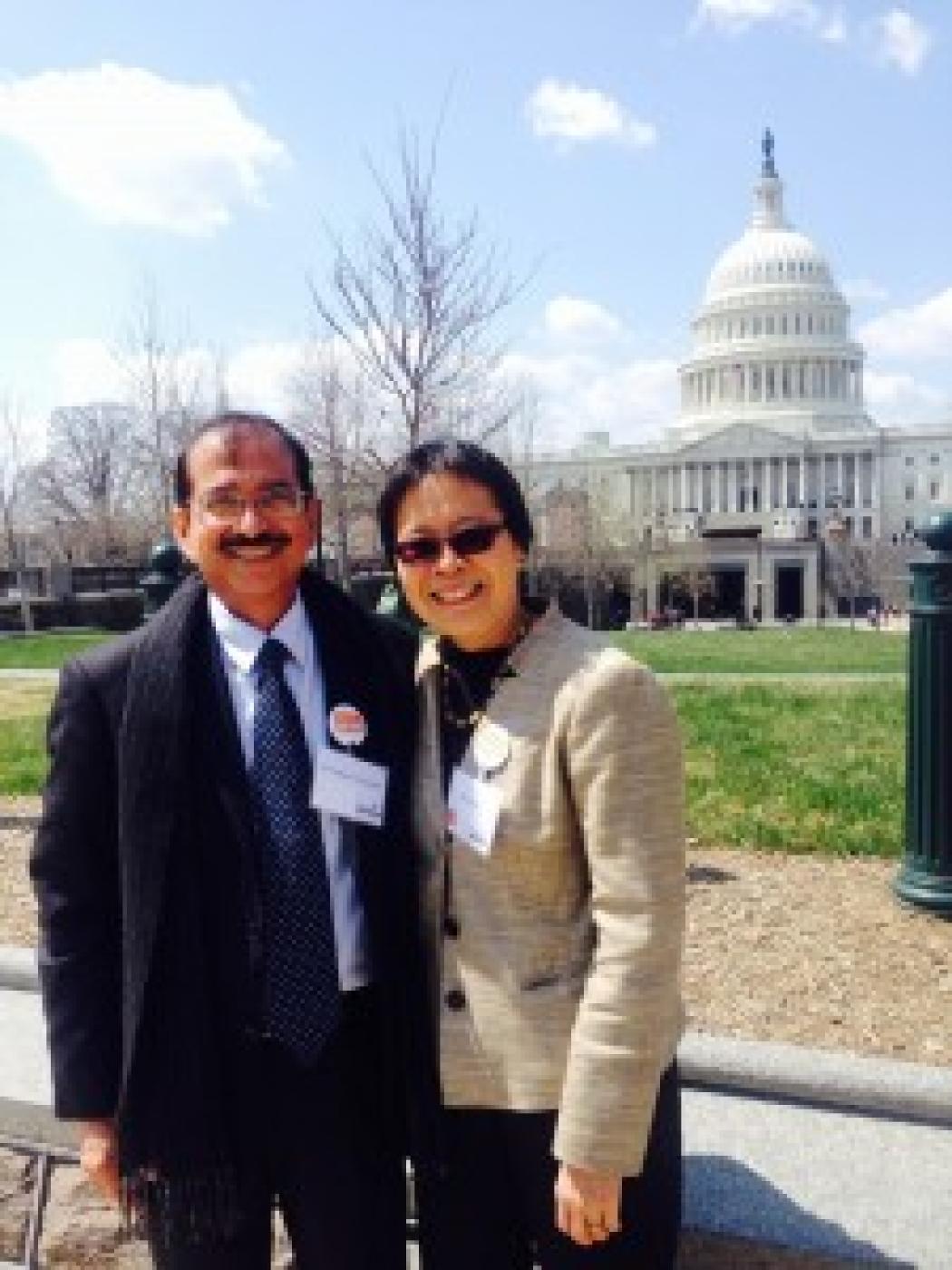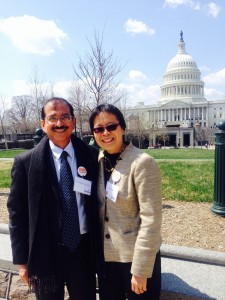What Motivates Our Best Health Workers? Investing in Patients and Communities

By Susan W. Hayes, ReSurge International
The following is a Q&A between Susan W. Hayes of ReSurge International and Drs. Shafquat Khundkar and Nancy Chee, recipients of 2014 The REAL Awards, a set of awards designed to celebrate and accelerate the lifesaving work of frontline health workers everywhere.
Every day, health workers save lives and renew health in all countries around the world. Properly trained and supported frontline health workers deliver critical services to their local communities and save millions of lives each year. Often working in difficult circumstances with few resources, what drives these health workers to continue striving day in and day out to reach those who are most in need of quality medical care?
As a member of the Frontline Health Workers Coalition, I was thrilled to nominate Drs. Shafquat Khundkar and Nancy Chee for The REAL Awards and was not a bit surprised when they were selected for the honor. They are two of the most exemplary health workers I have known in my years with ReSurge International. After the awards presentation this spring I had a chance to interview Nancy and Shafquat on their experiences – on what motivates them and their views on what is needed to improve health care worldwide:
What motivates you to do the work you do every day?
Shafquat: When you look at the smile of a mother who had a cleft lip or a burned child who has had a surgery and their limbs can now move easily – that smile, that pleasure, is unsurpassed by any pleasure money can buy. I have had grandmothers come over hundreds of miles just to say, “Who is the person who changed my grandchild? I want to see that person.” This is a feeling that no one else gets. I can't explain it in words, but it is a real driving force. It just keeps you going. I know that for many people money is very important, but this is something different. This is something great.
Nancy: My lifelong work began as a child, knowing I wanted to help people. Growing up in an immigrant family, I learned about core values and that you love and care for one another through all things, good or bad. While attending college, I fell into a career through which I could live out these values, as an occupational therapist. I have learned so much from other amazing health care providers who have taught me not just professional skills, but also how to show compassion for your clients. Having been at this for more than 30 years, I still love my work and have the same desire to help others that I had as a child. It is also refreshing to be able to share my experiences and teaching with students in a graduate school program. I hope they may be inspired to share their work and help others as frontline health workers here and abroad.
In Bangladesh or the countries you’ve visited, have you seen a shortage of health workers? If so, what do you believe is the cause of that shortage?
Nancy: In every single country I have visited and worked in, there have been shortages of health care providers. Causes for this include access to the education needed to train qualified workers, and opportunities and resources for individuals to become health care workers. Many people in underserved countries are poor and can manage only to survive day to day in making ends meet. Being able to get an education beyond the basics would allow people to seek careers as doctors, nurses or therapists. But once educated, the challenge is to retain these workers to stay and care for their own people.
Shafquat: Yes, certainly. There are a lot of factors. One is a short scope for training. There is also a shortage of people who instill a feeling of doing this for people and inspire people to continue to do reconstructive surgery. It’s the attitude, the inspiration – there is a shortage of that. There must be something that attracts people.
What kind of need have you seen for reconstructive surgery and rehabilitation in these countries?
Shafquat: There’s such a huge need for reconstructive surgery in Bangladesh. With various incidences of burns, trauma and other conditions that require reconstructive surgery, and with longevity increasing, we are bound to see the need for it on the rise. For years to come, Bangladesh will require reconstructive plastic surgery. Even if we try to do cosmetic surgery, that will not compose more than 10% of the work.
Nancy: I work in the area of hand reconstruction and follow-up care, and not being able to use one’s hand, great or small, can affect the life and function of individuals. This can be physical, psychological and emotional. On the outside, one can be seen as disabled and deformed, especially with burn injuries, but this also affects one’s psychological and emotional being. Also, in many cultures, people with injuries or deformities can be shunned or be used for money – begging to make a living. There is such a shortage of services and care for these patients. Going abroad is one small way I feel that I can contribute directly to patients, but more importantly, to the knowledge of local staff, which will continue the care after volunteers leave.
Why is it important for the international community to put more funding toward frontline health workers?
Nancy: Because that is the only way health care can best be provided and sustained in each community. It is honorable for people travel to volunteer in underserved communities, but after we leave, the work and care can only continue through the frontline health workers in these communities. Countries need to invest more funding within their own borders if they want to ensure that their people can receive long-term care. This can be direct financial support to hospital, clinics and workers, but there also has to be an investment in education and opportunities to train future health care workers.
Shafquat: We in developing countries can’t do it alone. We need support. There are NGOs that are supporting us, but they also need support. It is the responsibility of the U.S. government to make sure that these NGOs can do that. NGOs know which people in the field are the right persons to work with, and through them, they can work to improve health in local communities.
To read more about these health workers, view The REAL Awards’ honoree pages for Nancy and for Shafquat. And to view photos of Shafquat in action in Bangladesh, check out this photo narrative.
Dr. Shafquat Khundkar is professor of plastic surgery at Popular Medical College Hospital in Dhaka and founded Bangladesh’s first plastic surgery residency program. He has worked with ReSurge surgical teams in Bangladesh since 1990, and in 2000, ReSurge established a Surgical Outreach Program in Dhaka so Shafquat and his team could provide care to patients year-round.
Dr. Nancy Chee is a senior hand therapist at California Pacific Medical Center in San Francisco. She has worked as a therapist for nearly 25 years and has volunteered with multiple NGOs for many years. Since 2003, she has treated patients and taught therapists with ReSurge in many locations, including Nepal, Sri Lanka, Bolivia and Vietnam.
Susan W. Hayes is president and CEO of ReSurge International (formerly Interplast), a Frontline Health Workers Coalition member which has provided more than 100,000 reconstructive surgeries and built medical capacity in developing countries since its founding at Stanford University in 1969.

